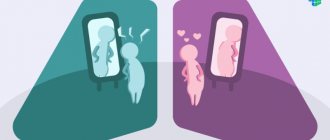Immunity is the body’s immunity to various infectious agents (bacteria, viruses, helminths, etc.).
Authors:
Derinova Elena Alexandrovna
French reflexology doctor (centrotherapist), pediatrician, psychologist
Rzheshniovetsky Gennady Petrovich
French reflexology doctor (centrotherapist), otorhinolaryngologist, clinical psychologist
Immune Guardian
It is generally accepted that a person who is rarely sick has good immunity, while a person who is often sick has a weakened immune system. A decrease in immunity can be either congenital - a genetic defect of the immune system (fortunately, it is quite rare), or acquired as a result of chronic diseases, severe infectious diseases (HIV, tuberculosis, etc.), poor nutrition, ecology, etc.
Currently, a large number of anti-infective defense mechanisms have been discovered, and this list is constantly growing due to new discoveries.
We are protected by:
- skin and mucous membranes;
- bactericidal secretions: lysozyme of saliva, hydrochloric acid of the stomach, etc.;
- the body's own antibiotics;
- cells of the immune system that find and “devour” infectious pathogens, vascular reactions, due to which swelling occurs at the site of inflammation, preventing the spread of infection throughout the body;
- other protective factors.
What diseases are caused by stress?
Conditionally, such diseases can be divided into the same subgroups as types of stress. In other words, each type of stress provokes its own separate group of diseases and disorders. They can overlap, be interconnected, and have blurred boundaries.
Psychological
– irritability, chronic fatigue syndrome, insomnia, apathy, depression, anxiety, loss of appetite, suicidal tendencies, anger, imbalance, phobias, nervousness, inappropriate behavior.
Physiological
– breathing disorders, inflammation, cardiovascular diseases, accelerated development of tumors, hair loss, premature aging, menstrual irregularities in women, problematic pregnancy, miscarriage, disorder of the sexual function of the body.
Spatial
– insomnia, insufficient sleep syndrome, morning headache, drowsiness, lethargy, chronic fatigue syndrome, apathy, irritability, blood pressure disorders.
Food
– intestinal upset, belching, heartburn, flatulence, diarrhea or constipation, excess weight or sudden weight loss, exacerbation of gastritis, stomach ulcers.
The greatest danger is the ability of stress to aggravate chronic diseases
. This could be allergies, asthma, tonsillitis, pancreatitis, osteochondrosis, hemorrhoids, enuresis and even cancer. Severe stress is often a trigger for a stroke or heart attack.
It is impossible to predict exactly how such conditions will affect a particular person. People are different: with different health, different immunity, different capabilities. The consequences of negative environmental influences vary from person to person.
"Communism" in the body
At the same time, one should remember the internationally recognized definition given by Nobel Prize laureate Academician I.P. Pavlov (1849-1936): “An organism is a unique self-regulating, self-healing, self-reproducing biological open system . In this system, a harmonious collection of organs and systems, everything is amazingly integrated and debugged. Analysis of the relationship between a cell and an organ as a whole, an organ and an organ system, as well as intersystem relationships involuntarily leads to the conclusion about the existing balance of interests of each element in the body. This kind of “biological communism” is united by a common goal - to live and develop. Moreover, each cell works for the needs of the whole organism, and it, in turn, takes care of it, providing it with everything it needs.
This unity is ensured primarily by the nervous system, as well as the immune and endocrine ones. In case of disturbances in these integrator-regulators, various consequences arise: from banal inflammation to various diseases, including cancer.
We have many of our own immune resources that protect us every second from the infectious environment in which we live. The body, using the mechanisms of self-regulation and self-healing, defends itself to the last, thus trying to survive. Health indicates a balance of protective resources and unfavorable factors.
Of course, unfavorable external factors and severe chronic diseases reduce the body’s ability to protect itself. But even in these conditions, he, so to speak, “holds the line.” An interesting fact: among people who breathe the same air and eat approximately the same, there are those who often get colds and those who practically never get sick. What is the reason?
Neurophysiologists have discovered one of the most important causes of immune problems
The organism is a system, i.e. a set of interconnected elements. In any system there are control structures subordinate to the hierarchy. In this case, the nervous system is the main one: it manages and controls everything and everyone in the body, including the immune system.
In the 80s, the leading scientist pathophysiologist, president of the Russian Society of Pathophysiologists, academician of the Russian Academy of Medical Sciences, Doctor of Medical Sciences, Professor G.N. Kryzhanovsky (1922-2013) introduced the concepts of “diseases of nervous regulation” and neurogenic immunodeficiency. “Diseases of nervous regulation are a broad class of pathology in which the leading link in the pathogenesis of diseases is disturbances in the nervous regulation apparatus.” Currently, the field of medicine “psychoneuroimmunology” is actively developing in different countries, studying the relationships between the human nervous system, his psyche and immunity.
Psychotherapy for your immune system
Scientists from the Netherlands decided to conduct a meta-analysis of studies that measured the effect of anti-stress programs on the functioning of the immune system. To do this, they selected 75 works in which more than 4,000 subjects took part. Study participants included both young healthy volunteers and people with various diseases: asthma, rheumatoid arthritis, ulcerative colitis, HIV infection, as well as elderly people. It is in these vulnerable groups—those with reduced immune function or, conversely, its overactivation and autoimmune diseases—that stress is likely to further disrupt immune function.
Participants offered different ways to deal with stress, but mostly they were related to relaxation and professional support from a psychologist. People underwent cognitive behavioral psychotherapy, meditated under the guidance of an expert, talked to a psychologist and talked about their feelings, and some even underwent hypnosis. As a result, the participants' immune profile changed: they had more natural killer cells, the proliferation rate of cytotoxic T lymphocytes increased, as did the number of anti-inflammatory cytokines. But the number of cytokines that spur the inflammatory response (such as interleukin-2, which causes a “cytokine storm” in patients with coronavirus) has decreased.
We can conclude that thanks to psychotherapy and mindfulness practices, a person in a stressful situation receives more adequate immunity. There is an increased likelihood that your immunity will be sufficient to destroy the pest—with less risk of an overreaction that could harm the body. So even if you don’t believe psychologists and meditation gurus, in a situation of chronic stress it makes sense to listen to them - if not for the sake of your own psyche, then at least as support for the immune system.
How are the nervous system, psyche and immunity connected?
Everything in the “organism” is tuned to achieve one goal - to survive, adapting to an ever-changing environment. Our health depends on the speed and quality of adaptation. All life is a constant adaptation to various situations, including difficult, stressful conditions. Stress is a state of tension that occurs in response to the influence of stressors - significant stimuli.
In this case, stressors can be different:
- physiological (extreme temperature, excessive or prolonged pain, limitation of movement, physical overload, infection, poisoning, ionizing radiation, radiation, etc.);
- psychological (information overload or insufficiency, emotional experiences, communication difficulties, etc.).
The world-famous physician, founder of psychosomatic medicine Franz Alexander (1891-1964) identified three factors in the development of psychosomatic illness, i.e. illness against the background of a stressful (psychotraumatic) situation:
- Psychogenic factor – a difficult life situation.
- A subjective attitude to this situation is a personal perception of a traumatic situation, on which the strength and depth of experiences depends.
- Predisposition to illness.
Numerous studies have established the emotional cause of many diseases, which confirms the well-known expression: “all diseases come from nerves.” In response to an unfavorable situation, negative emotions arise first. The leading ones are anger and fear (anxiety).
Imagine the situations:
- The boss scolded him, the subordinate became upset, began to worry, resentment arose - anger at the boss, and someone else had a fear of losing their job.
- The child received a bad grade and his parents scolded him. The main need of children is to be accepted and loved by their parents. In response, the child developed fear: “That means I’m bad, they don’t like me!” Or maybe anger at the parents, and even at the teacher, who may have unfairly given a bad mark.
- A man went out into the street, dressed inappropriately for the season, walked and was freezing, while experiencing terrible discomfort, angry with himself and the weather.
- I was walking down the street, a dog ran up and barked, and I was very scared. There is a security threat.
How to avoid stress?
In confronting stressful situations, the first allies are:
- Healthy lifestyle;
- Rejection of bad habits;
- Proper nutrition;
- Sports or physical activity;
- Positive life attitude;
- Healthy sleep;
- Breathing exercises;
- Yoga;
- Self-discipline, self-control, self-confidence;
- Change the situation to a positive one;
There are many recommendations that can be given for each point. And we will definitely do this in separate articles. But now let's focus on the main thing...
Surely many of us have noticed how we begin to get sick more often when we are exposed to frequent or prolonged stressful situations. Have you noticed that calm, positive, friendly and kind people are much less likely to get sick?
This is not a random pattern. In order to resist negativity, you need to develop protection from them within yourself.
Our psycho-emotional state plays an important role in confronting experiences, anxieties, and dangers. Learn to control your negative emotions:
- Do not accept negativity
, but let it pass through yourself. You were insulted, accidentally pushed, or witnessed unpleasant events. Don't accumulate or keep these emotions to yourself. Remove yourself from the situation; - Learn to let go of a situation if you are powerless in it
. For example, don’t get nervous in a traffic jam, because your emotions cannot clear the traffic jam, which means it’s pointless to worry, nothing depends on you); - Almost all failures, falls, adversity are not fatal
. In a year you will forget how you were fired from your job or how your loved one left you. So why can’t we make him forget about it now? It is in your power to “speed up” these processes, and not worry. There will be a new job, there will be new relationships; - Learn to see new opportunities in challenges.
Got into an accident? Unpleasant. But now you have learned how to fill out documents in case of an accident, communicate with traffic police officers and insurance companies. Resolve conflict with your opponent. Next time you will feel more confident in a force majeure situation; - Find the strength to overcome the situation.
Do not binge, do not drink (alcohol) your experiences. This will only make your condition worse. Having overcome an unpleasant situation on your own, you will gain “immunity” to it; - Learn to treat problems as temporary phenomena.
It is important to give yourself the attitude that “this is not forever.” That behind the black stripe there will be a white one.
In extreme cases, you can take natural sedatives. They will help you survive anxiety, dull acute feelings or anxiety. Will help you fall asleep faster if you have trouble sleeping.
Of course, in case of any complications, it is recommended to consult a doctor.
Let's dig deeper...
Emotion is a powerful energy that originates in the limbic system of the brain. This system is closely connected with another important structure of the brain - the reticular formation, a kind of “biological power plant”. Both of these structures form the limbic-reticular complex, which is directly connected to the subcortical nerve centers - the control structures of organs and systems. Thus, the generated energy charge is directed to the nerve centers, a kind of leaders of directions - the vasomotor center, respiratory, thermoregulation, immune, gastric secretion, etc.
What is the energy of emotions needed for?
Negative emotions, on the one hand, signal the consciousness about the emerging threat to satisfy a need or ignore it (signaling function), and on the other hand, they have energy in the form of a focus of excitation in emotional structures, intended to form a reaction aimed at satisfying the need (energy function).
For example: a person is hungry, feels discomfort, begins to get angry, sometimes cannot do anything until he satisfies the need for food. In this case, the energy of a negative emotion turns on a search mechanism to satisfy a need, in this case for food. Nerve centers are included in the work, which give impulses to other systems and organs that take part in satisfying a specific need. A person begins to remember (think) about a place where he can eat nearby or is looking for a grocery store. In the end, a person finds a cafe, satisfies his current need and... ceases to experience discomfort. Why? It turns out that after the need is satisfied, the source of excitement goes out - the threat to life has passed. You can relax (satisfy the need) or do something else. What happened to that same negative emotion? She is no longer there, all the energy of emotion has been spent. Therefore, with a certain assumption, we can say that life is a job of satisfying needs. And emotions are an indispensable and one of the main participants in this process.
Nerves, nerves, nerves...
How many unmet needs we have, difficult current unresolved situations, tense relationships. You just try to forget for a while, but thoughts about them are still there, spinning around in your head. Behind them are fear, anger, anxiety - those signals that constantly remind you of unresolved problems.
As long as there is a threat and the problem is not solved, emotions will constantly explode in the head or gnaw at the soul.
If the problem is not resolved, then the energy of emotion, originally intended to satisfy the need, is directed to hierarchically lower control centers of organs and systems, causing disturbances in their work. This, in turn, leads to dysfunction of the corresponding organ or system, which is called a disease.
Remember the situation presented above. The child received a bad grade and his parents scolded him. A range of emotions arose. Fear: “I’m bad, they don’t like me!”, anger at parents, at teachers. Strong feelings were intensified by new frightening thoughts: “Now they won’t buy me a new computer and I won’t be able to play with the guys - this one won’t work! They won't let you go for a walk! I'll lose friends! I am a loser…"
By evening, the boy had a fever, a runny nose, and began to cough. Mom is surprised: “Why did our Vanechka get sick? No one in the class is sick. Everyone is healthy at home."
Really, what happened?
Why are constant worries dangerous?
By and large, stress can be divided into two types - psychological and physical. While psychological stress is caused by worrying about something (be it a predator or an approaching deadline), physical stress occurs due to environmental factors such as air pollution, poor nutrition or exhaustion.
Chronic psychological stress is associated with a weakened immune system. If it is compromised and no longer able to cope with stress, it can contribute to the onset of disease.
Scientists noticed the connection between stress and immune system resilience during animal experiments in the early 1980s. The experiments were transferred to humans when researchers began observing medical students. Scientists have found that students' immunity declines during exams due to depleted levels of T cells, one of the most important weapons in the fight against infections.
Than the heart will calm down
Photo: Depositphotos/fizkes
Additional experiments showed that chronic stress interferes with the molecular signals that immune cells use to communicate with each other.
“If you want, you will live”: stories of women who survived breast cancer
What to do if a serious illness is diagnosed already in the third stage
Another study published in Frontiers in Immunology in 2018 demonstrated the effects of stress on antitumor immunity. After causing stress and the growth of cancerous tumors in mice, the researchers began giving an antidepressant to some of the experimental subjects. The results showed a noticeable difference: mice treated with the drug had significantly reduced cancer progression compared to mice that were not treated.
Cancer isn't the only disease that may progress faster in a stressful environment. Nervous stress increases the risk of heart disease, digestive problems, excess weight, headaches and muscle pain and, of course, mental health problems such as anxiety and depression.
Short-term neurogenic immunodeficiency
And the following happened: the accumulated and intensified energy of negative emotions (excessive focus of excitation) disrupted the functioning of the nerve centers, including the immune center “out of order.” Against this background, there was a decrease in the tonic influence of the sympathetic nervous system (its adaptive-trophic function). As a result of the deterioration of the trophism (nutrition) of the tissues and epithelium of the upper respiratory tract, the production of local immune factors decreased, which led to the unhindered reproduction and penetration of respiratory infectious pathogens into the tissues and inflammation occurred.
We live surrounded and in cohabitation with a huge number of viruses and bacteria, which, when our defenses are weakened, begin to actively multiply and penetrate into tissues. The body, in defense, forms an inflammatory response, manifested by symptoms of inflammation, which we call disease. In this case, the child developed: a runny nose, pharyngitis, and maybe tracheitis. Thus, illness is a clear manifestation of the fight in the body, in this case, with an infection that has penetrated inside.
Why do we experience stress?
Emotional anxiety is a complexly organized state. When we experience stress, our body's internal chemistry changes. First of all, the level of cortisol increases, this is the main stress hormone along with adrenaline and norepinephrine. As a result, blood sugar levels rise and more glucose enters the brain.
In general, this is not bad - this chain helps the body in the so-called “fight or flight” reaction, which has deep evolutionary significance and protects us to this day. In prehistoric times, our ancestors needed an additional incentive that told them whether to fight the enemy or retreat. In case of danger, muscle strength, reaction speed, endurance and even pain threshold increased for a short time. These days, these biochemical reactions come into play to help us make quick decisions when we're under pressure.
Than the heart will calm down
Photo: RIA Novosti/Evgeniy Biyatov
However, our body prepares for battle not only at the moment of a serious threat. The same processes are triggered when we are late for work or argue with family members. Some people have also faced long-term psychological stress during the pandemic. In such cases, the reaction to increased anxiety turns out to be more harmful than beneficial.
A breath of despair: how air spoils men's health
Scientists have found that air pollution negatively affects the brain and reduces reproductive functions.
Colds and nerves
One of the founders of microbiology, Louis Pasteur, famously said: “Microbes are nothing, soil is everything.” By this he emphasized that the main factor in infection depends on the body and its defenses. The given example with a boy illustrates the important role of psycho-emotional experiences even with such a seemingly well-known disease as a cold. Without in any way refuting the theory of the infectious process, we only focus on a well-known fact - immunity depends on the state of the nervous system and is controlled by it. Unfortunately, the role of emotions is currently underestimated, which is wrong.










